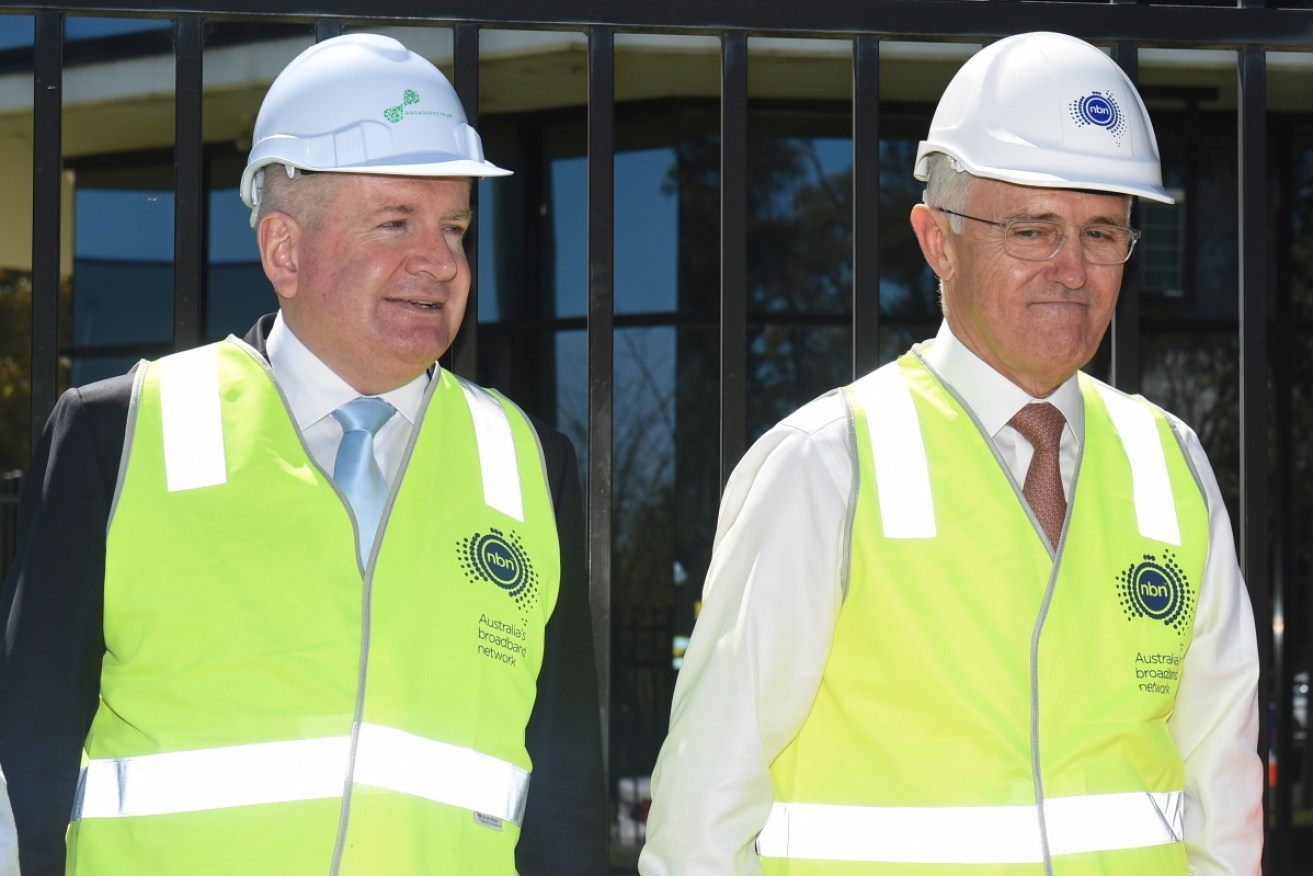No plans to fund upgrades for Australians with inferior NBN


No planned political solution for Aussies left with inferior NBN at the end of the rollout. Photo: AAP
Neither major political party has plans to fund upgrades for Australians who have been dealt the “inferior” hand of the NBN rollout — fibre-to-node (FTTN).
Earmarked for up to 40 per cent of the National Broadband Network, FTTN has been criticised as “unsuitable” to support new technologies such as virtual reality.
A spokeswoman for Communications Minister Mitch Fifield refused to respond to The New Daily‘s request for comment about whether the Coalition would consider funding upgrades for the FTTN portion of the network as part of its election policy.
She said the NBN rollout would be complete by 2020, but would not say whether it would be finished before the next federal election, which must be held prior to May 2019.
Meanwhile, Shadow Communications Minister Michelle Rowland said Labor did not have a pre-election policy regarding the NBN at this stage.
In an exclusive interview with The New Daily, when asked whether an elected Labor government would consider ripping up the copper wires of the existing FTTN network and replacing it with a superior technology, Ms Rowland responded:
“No, we’re not proposing to do that.

Shadow Communications Minister Michelle Rowland and Opposition Leader Bill Shorten. Photo: AAP
“It remains to be seen … An incoming government would have to really, prudently look at, firstly, the tens of thousands of premises that will be service class zero and examine what to do with those areas.”
Ms Rowland dismissed a recent report that “inaccurately” suggested Labor had included fibre-to-the-kerb (FTTC or FTTdp) as a centrepiece of its policy.
“That’s actually a call we make to the government right now, rather than it being an election policy,” she said.
“We can’t take the same policy (93 per cent FTTP) into the next election. We really need to have a policy that reflects the realities on the ground.
“We are very keen to take fibre as close as possible to people’s homes.”
The FTTC ‘compromise’
NBN Co will move a small portion of the network previously designated for FTTN onto the FTTC network, largely in outer suburban areas, beginning in the first half of 2018.
FTTC is one of the latest additions to its multi-technology mix, which involves connecting fibre to a distribution point outside each serviced home. This uses a much shorter length of existing copper cable than for FTTN, which means it should achieve faster internet speeds.
An NBN Co spokesman told The New Daily the FTTC build had commenced and will service one million premises.
He said that, of those FTTC premises, less than 600,000 were previously earmarked for FTTN. The remainder had been intended for HFC.
However, despite increasing complaints to the Telecommunications Industry Ombudsman, the remaining inferior FTTN rollout is to continue.
The NBN has potential to create opportunities
Ms Rowland, who was a competition and regulation lawyer for 10 years, told The New Daily that while FTTC was not the best option, it was “certainly economically and engineeringly feasible … a compromise for the FTTN cohort of the network”.
“We talk about education as being the big transformational process, but the transformative power of ICT (information and communication technology) cannot be underestimated,” she said.
“Particular sectors like the gaming ecosystem — this is a multibillion dollar industry — there’s a really great opportunity in Australia now, with a reliable and affordable broadband system in place.”
Referring to the recent Unwired conference where Communications Minister Mr Fifield did not once refer to the NBN, Ms Rowland said his behaviour was “quite telling”.
“The NBN will be critical to every aspect of the economy. I think it needs to be mentioned in almost every economic context,” she said.
“That’s quite telling … for a comms minister to not be talking about the single most biggest piece of infrastructure that the nation’s building.”

Mitch Fifield didn’t mention the NBN at a recent conference. Photo: AAP
A spokeswoman for Mr Fifield said the conference had focused on mobile communications and the minister had been specifically asked to talk about 5G.
“Under Labor, the NBN rollout missed every target it was set,” Mr Fifield’s spokeswoman said.
“Labor’s NBN would have cost $30 billion more and taken six to eight years longer to complete.”
Ms Rowland said she could not remember the last time she received a complaint from someone in her electorate in an FTTP area.
“The time is right to say ‘we got it wrong. We need to go back and do it right and do it with fibre’,” she said.
“Broadband is basically a human right. If it was a human right in Australia, then we would be absolutely in breach.”








